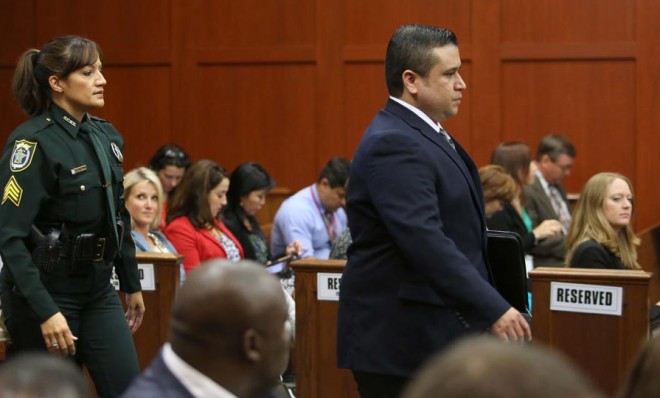Can George Zimmerman get a fair trial?
After 15 months of intense media coverage, the man who says he shot Trayvon Martin in self-defense has his day in court


A free daily email with the biggest news stories of the day – and the best features from TheWeek.com
You are now subscribed
Your newsletter sign-up was successful
Jury selection began Monday in George Zimmerman's second-degree murder trial for the killing of Trayvon Martin in February 2012. Zimmerman, who is white and Latino, says he shot Martin, an unarmed black teen, in self-defense. The racially charged case has been splashed in the headlines for more than a year, and Zimmerman's brother, Robert, says he doubts it will possible to find impartial jurors. After all the publicity, is there any chance the trial be fair?
(Related: Read our helpful timeline on the case.)
Zimmerman's lawyers say they are concerned that the case's racial overtones could make jury selection tricky. Still, they must think there are six jurors and four alternates in the Sanford, Fla., area who can listen to testimony with an open mind. Liz Goodwin notes at Yahoo News that if the defense weren't confident, it could have requested a change of venue — but it didn't.
The Week
Escape your echo chamber. Get the facts behind the news, plus analysis from multiple perspectives.

Sign up for The Week's Free Newsletters
From our morning news briefing to a weekly Good News Newsletter, get the best of The Week delivered directly to your inbox.
From our morning news briefing to a weekly Good News Newsletter, get the best of The Week delivered directly to your inbox.
A change of venue might not have helped though. There is no denying that the entire community has had access to the details of the investigation — from witness statements to 911 calls to police reports and autopsy results. But Jonathan Capehart at The Washington Post notes that everyone in the country has been able to ponder the case "as if we were detectives on Law & Order."
Of course, this is far from the first case in which widespread media coverage has made it difficult to find jurors who aren't already leaning one way or the other. As in every such case, says Rene Stutzman in The Orlando Sentinel, the defense and the prosecution will just have to ensure that they pick at least some jurors they think will be sympathetic to their arguments.
Defense attorneys will likely favor people age 40 and older, predicted Orlando jury consultant Susan Constantine. They'll also want managers, authority figures, people who are analytic — engineers, for example — those who are unemotional and will focus on the facts.Expect prosecutors to favor people ages 18 to 35, those with lower-paying jobs — for example, social workers, construction workers or people in service industries — and, in general, those who rely more on emotion in making decisions, Constantine said. Defense attorneys will favor whites, prosecutors blacks, she said. [Orlando Sentinel]
A free daily email with the biggest news stories of the day – and the best features from TheWeek.com
Harold Maass is a contributing editor at The Week. He has been writing for The Week since the 2001 debut of the U.S. print edition and served as editor of TheWeek.com when it launched in 2008. Harold started his career as a newspaper reporter in South Florida and Haiti. He has previously worked for a variety of news outlets, including The Miami Herald, ABC News and Fox News, and for several years wrote a daily roundup of financial news for The Week and Yahoo Finance.
-
 The Gallivant: style and charm steps from Camber Sands
The Gallivant: style and charm steps from Camber SandsThe Week Recommends Nestled behind the dunes, this luxury hotel is a great place to hunker down and get cosy
-
 The President’s Cake: ‘sweet tragedy’ about a little girl on a baking mission in Iraq
The President’s Cake: ‘sweet tragedy’ about a little girl on a baking mission in IraqThe Week Recommends Charming debut from Hasan Hadi is filled with ‘vivid characters’
-
 Kia EV4: a ‘terrifically comfy’ electric car
Kia EV4: a ‘terrifically comfy’ electric carThe Week Recommends The family-friendly vehicle has ‘plush seats’ and generous space
